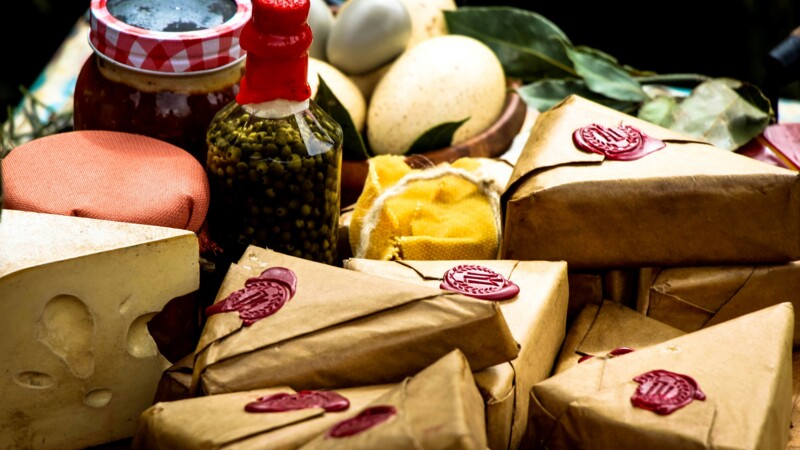"We are very proud to have won the tender for this beautiful property right on Lake Alster," said Schröder, a professional chef, who has all the experience needed to make the eatery in the listed building a success. The restaurant is the latest addition to his portfolio, which includes a string of restaurants, a bar, a beach club and a catering service, as well as a gastro-consulting company. Commenting on his recipe for success, Schröder pointed out: “Every concept is fully refinanced before we move on to the next project.” Meanwhile, joint manager and star chef, Jens Rittmeyer, recommends having a second mainstay for more financial security: “Why not expand a catering business with an online shop and sell bread or your own spice mixture?” Rittmeyer is speaking from personal experience as he comes up with recipes for high-quality sauces, jus and stocks in his manufactory in Buxtehude. This is his personal mainstay and has earned him the reputation of “sauce god”.
"Courage" was the buzzword Monday (June 23, 2025) at the Food Innovation Camp amid rising costs of food and energy and the shortage of skilled labour, which are proving a headache for the catering industry. And increasingly thrifty consumers are keeping a firm grip on their wallet before spending or going to a restaurant. Thus, a 3.8 per cent drop in sales across the catering sector in 2024 over 2023 is not surprising. Nevertheless, there are more optimistic tales to tell such as that of Hannes Schröder, Küchenfreunde, and Niklas Nordmann, Ratsherrn Brauerei, new managers of the Alsterpavillon in downtown Hamburg. The duo have just signed a 40-year lease on the restaurant.
Recipes for success
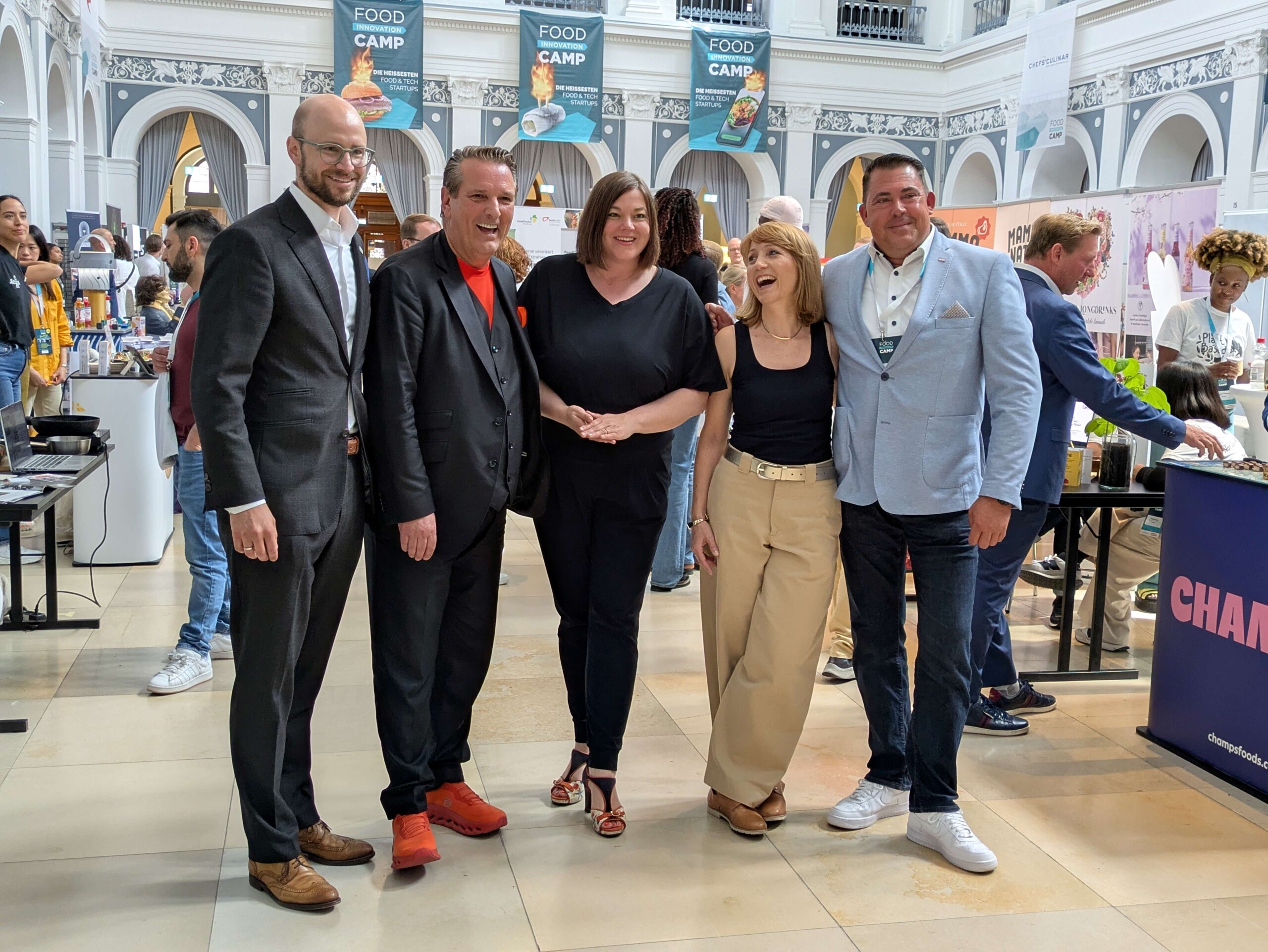
Backing from Chamber of Commerce and cluster
"Recipes cannot be protected under trademark law, but they can be declared a trade secret," said Dr Hanna Blaschke of the Innovation and Patent Centre (IPC), which is the main point of contact for companies, founders and inventors keen to protect and develop their ideas. "You should definitely consider protecting your idea from the outset,' she recommended. And there is plenty to protect - from trademarks and designs to logos and even sounds. "A jingle can be protected as a sound trademark. That also applies to a specific sound, such as the hissing of a coffee machine being switched on." The IPC is part of the Chamber of Commerce, which offers many other counselling services in person, digitally or during company workshops.
The new Food Cluster Hamburg offers a range of further education courses, training and workshops and covers everything from regulation and quality assurance to innovation management. Given the backdrop of 4,500 companies with 123,000 employees in the food industry, one of the cluster's main tasks is to encourage more intense talks. "That's more people than would fit into two sold-out Volkspark stadiums," said Sascha Taube, Managing Director of the Food Cluster Hamburg.
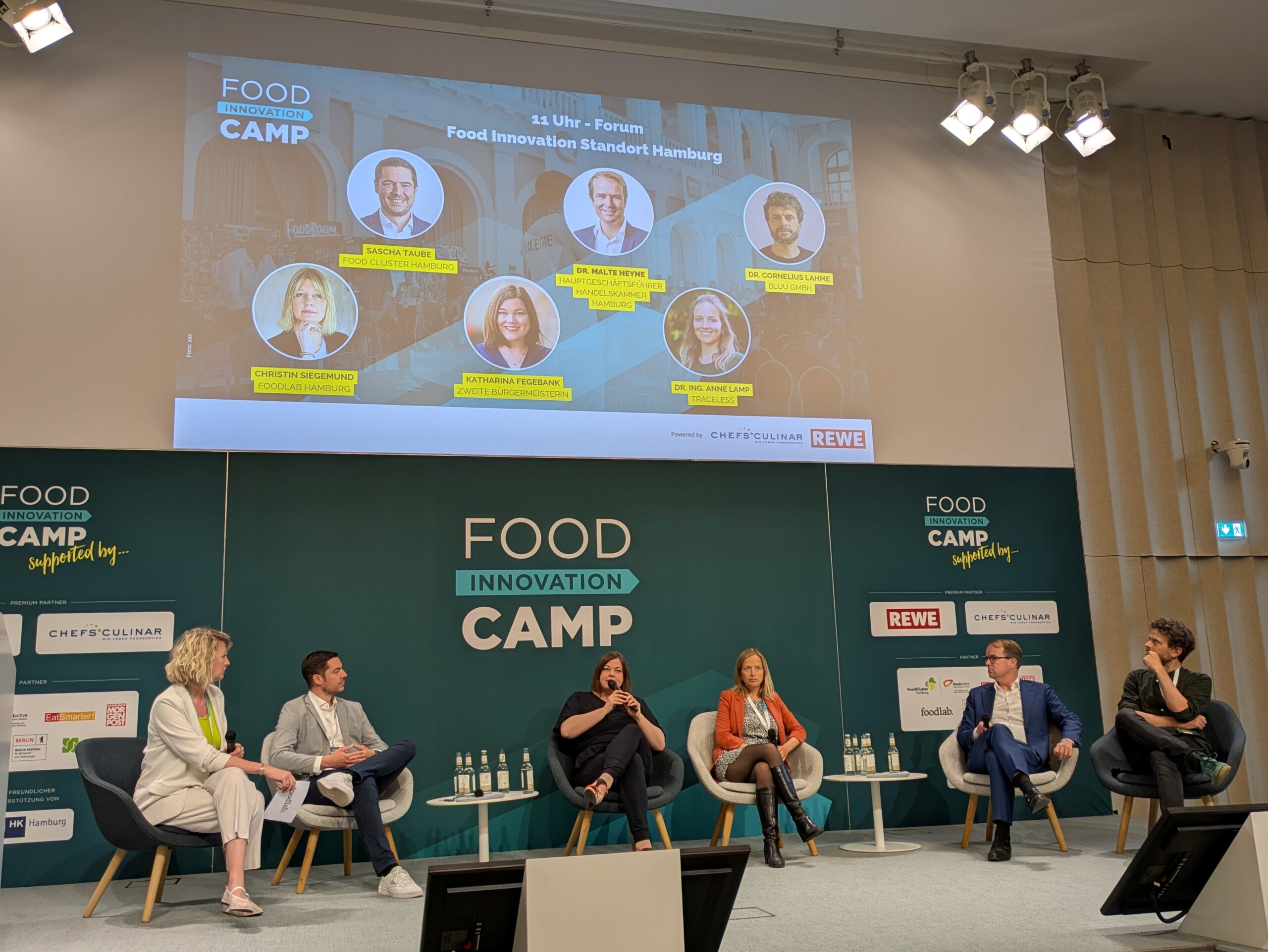
Excellent environment for innovation
The transfer of knowledge from universities to industry is crucial to Hamburg's status as a centre of innovation, according to Katharina Fegebank, Deputy Mayor of Hamburg. This was confirmed in May when the German Research Council and the Science Council recognised four clusters of excellence and added the Hamburg University of Technology to the list. "Hamburg is also attracting global attention as a science centre," Fegebank noted, citing Science City Hamburg Bahrenfeld and the Bergedorf Energy Campus as examples. "And the Hamburg Institute for Advanced Studies is also attracting excellent visiting scientists from all over the world," she added. The city's image is being enhanced by a diverse funding ecosystem ranging from schemes offered by the Hamburg Investment and Development Bank to "Calls for Transfer" for research into biodegradable packaging or alternatives for plastic cutlery.
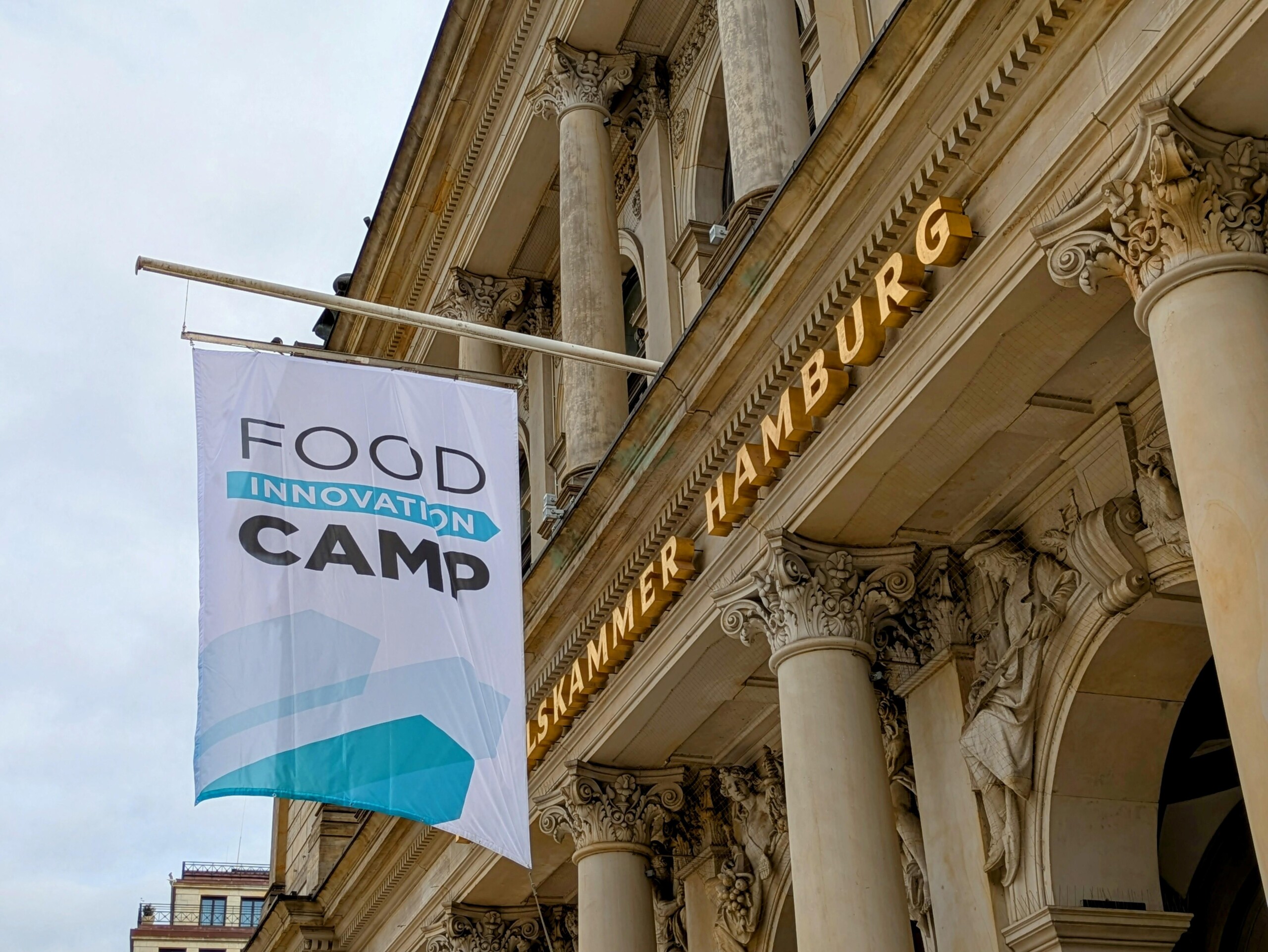
Between hope and fear
The operational business is driving the food industry. "Issues such as export conditions or procuring raw materials and their availability can no longer be taken for granted," according to Dr Annika Schröder, Managing Director of Foodactive e. V. And Annemarie Heyl, Managing Director of the Hamburg-based Kale & Me and board member of Foodactive, added: "People are less willing to make long-term investments, e.g., in sustainability and amid ongoing geopolitical uncertainty." The catering industry is caught between hope and fear: On the one hand, the German government's coalition agreement foresees a permanent reduction in VAT on food to 7 per cent from 2026. However, there is also talk of introducing a minimum wage of €15 up from €12.82, from 2026.

Staging food innovations
Many of the 80 exhibitors presented plant-based substitutes for animal-based foods during FIC 2025. Emphasis was also on the need for novel products that are as natural as possible, as opposed to highly processed products with too many additives, flavourings or isolated fats. The opportunities offered by alternative proteins were also a key topic on the agenda. Experts see non-animal protein sources as pivotal to a turnaround in nutrition. FIC also featured the inaugural Foodsense Forum, which tackled issues such as cell-cultivated meat and products produced through biomass fermentation. The future of nutrition took centre stage through music, art and performances, offering an inspiring, sensual approach to food innovation.
ys/sb/pb
Sources and further information
More
Similar articles
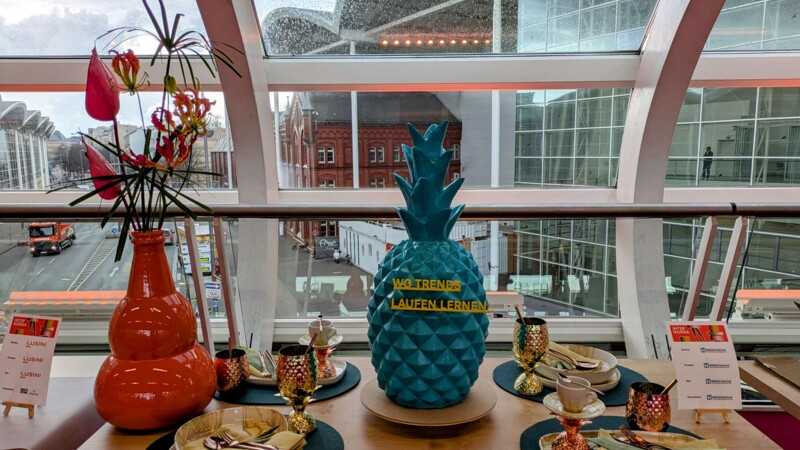
99th Internorga highlights latest trends
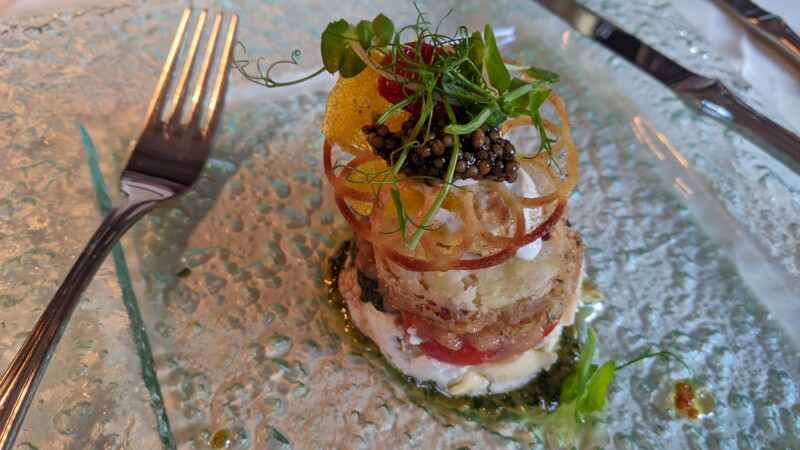
Exciting food novelties from Hamburg
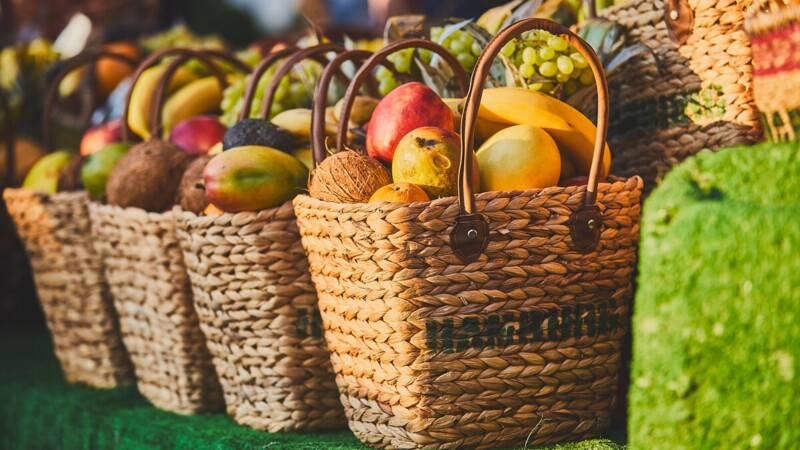
Digital twin of orchards to boost fruit growing in Alte Land
